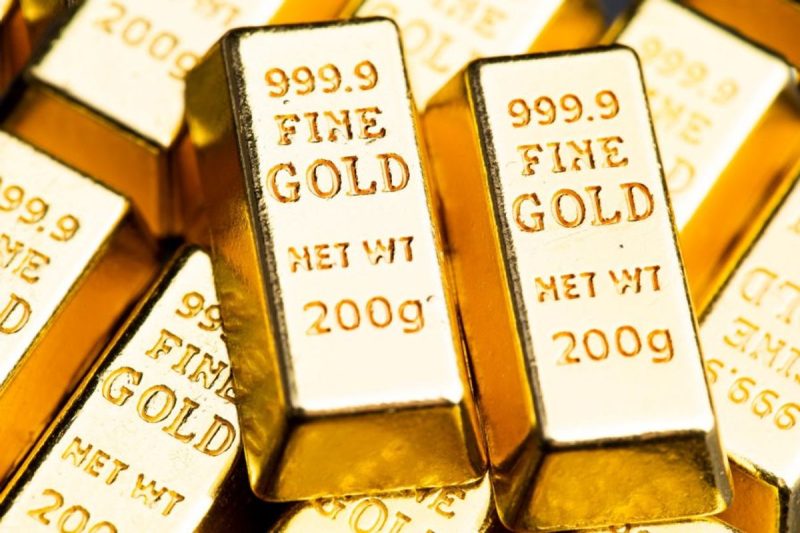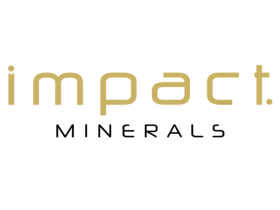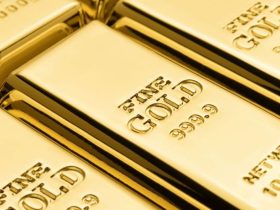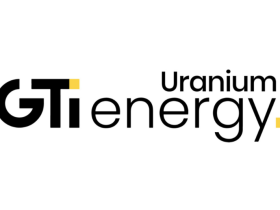The S&P/TSX Venture Composite Index (INDEXTSI:JX) saw gains in the week leading up to the holiday break, adding 26.27 points to close at 557.12.
Canada’s gross domestic product (GDP) was unchanged for the month of October, with Statscan reporting last Friday (December 22) a nominal 0.1 percent growth in service industries and an even split for increases and decreases between the 20 industrial sectors it tracks. As the GDP has remained flat and still hasn’t slipped into loss territory, that indicates the economy is not in a recession.
However, relief in the form of rate cuts isn’t expected soon, with Bank of Canada Governor Tiff Macklem saying the central bank wouldn’t be cutting rates until there was a clear indication inflation was well on a path to reaching a 2 percent target.
South of the border things were a little more rosy, as inflation data for November released this past Friday showed that the personal consumption expenditure index, a key gauge used by the US Federal Reserve to measure inflation, rose 3.2 percent year-over-year, surprising analysts who had expected a slightly higher year-over-year gain of 3.3 percent.
The past week was the last full week of trading before the extended holiday break. How have junior mining stocks on the TSXV performed before the four-day break? Keep reading to find out.
1. Rio2 (TSXV:RIO)
Weekly gain: 73.91 percent; market cap: C$104.8 million; current share price: C$0.40
Rio2 is a junior gold development and mining company focused on bringing its Fenix gold project in the Atacama region of Chile to production. The site, located 20 kilometers south of Kinross Gold’s (TSX:K,NYSE:KGC) La Coipa gold and silver mine, has measured and indicated reserves of 4.8 million ounces of gold. Once built the mine is expected to deliver 1.32 million ounces of gold per year, with a lifespan of 16.2 years.
Construction at the site has been halted since a July 2022 decision that denied the company’s environmental impact assessment, which was the necessary approval to continue with the project. Following a review, Rio2 said in a September 2022 release it had identified numerous discrepancies with factual and procedural matters of the review and would be exercising its right to an administrative appeal.
Shares in Rio2 reached a year-to-date high last week of C$0.405 following news on Wednesday (December 20) that the company has secured approval for its environmental impact assessment for Fenix. This critical step will allow Rio2 to begin permitting and financing for the next phase of construction in 2024.
2. Firefox Gold (TSXV:FFOX)
Weekly gain: 50 percent; market cap: C$12.19 million; current share price: C$0.09
Firefox Gold is an exploration company focused on its projects in Finland, including the Mustajärvi gold project. The site in Northern Finland hosts a 2.1 kilometer strike zone at which drilling has uncovered multiple high-grade intercepts including 15.04 grams per metric ton (g/t) gold over 13.05 meters.
Among its other assets are what it refers to as its Northern Group properties, which includes several prospective gold targets such as its Sarvi project and its Kolho Trend target, which covers a 23-kilometer-long contact zone with gold-bearing potential. Firefox received its first exploration permit for the site’s Nuttio target earlier in 2023 and began exploration activities in April, but has not released results.
Shares in Firefox saw gains this past week following an announcement on Wednesday that it had entered into a strategic financing agreement with Agnico Eagle Mines (TSX:AEM,NYSE:AEM) for C$1.43 million, for total gross proceeds of C$1.69 million which would provide funding for exploration efforts at Mustajärvi and other Lapland projects. Concurrently, the two companies entered an earn-in agreement in which Agnico Eagle can earn a 51 percent stake in the Kolho property by incurring US$5 million in exploration spending within five years.
3. EV Nickel (TSXV:EVNI)
Weekly gain: 46.34 percent; market cap: C$23.82 million; current share price: C$0.30
EV Nickel is a nickel exploration company focused on its Shaw Dome asset south of Timmins in Ontario, Canada. The project consists of over 30,000 hectares, with more than 100 kilometers of strike length. Its two primary zones are the W4 zone, which contains measured, indicated and inferred reserves of 19,640.5 metric tons (MT) of nickel; and the large-scale CarLang area, which hosts indicated and inferred resources of 2.4 million metric tons of nickel.
Shares in EV Nickel are up more than 46 percent this week, although the company hasn’t released any news since its interim financial report on November 28.
4. Arras Minerals (TSXV:ARK)
Weekly gain: 44.44 percent; market cap: C$16.10 million; current share price: C$0.325
Arras Minerals is a junior exploration and development company with a portfolio of copper and gold assets located in Northeast Kazakhstan, specifically focused on the development of projects within the Bozshakol-Chingiz magmatic arc. The company currently holds the third largest land package in the country at 3,300 kilometers, behind only Rio Tinto (ASX:RIO,LSE:RIO,NYSE:RIO) and Fortescue (ASX:FMG,OTCQX:FSUMF).
Arras has seen significant gains in the past week, although its most recent update was the announcement of a strategic alliance with Teck Resources (TSX:TECK.A,TSX:TECK.B,NYSE:TECK) on December 7. The alliance would target critical metals in Arras’ portfolio in the Bozshakol-Chingiz magmatic arc, but does not include Arras’ flagship Beskauga copper-gold project and its Stepnoe, Ekidos, Aimandai and Elemes exploration licenses.
5. Defense Metals (TSXV:DEFN)
Weekly gain: 37.5 percent; market cap: C$70.34 million; current share price: C$0.22
Defense Metals is a rare earth metals exploration and development company that is currently focused on its 100 percent owned Wicheeda property near Prince George in British Columbia, Canada. The project hosts measured and indicated mineral reserves of 699,000 MT of total rare earth oxides.
Shares in Defense have seen price gains this past week following an announcement on Monday (December 18) of the results of its annual general meeting that indicated that all matters submitted to shareholders were approved.
FAQs for TSXV stocks
What is the difference between the TSX and TSXV?
The TSX, or Toronto Stock Exchange, is used by senior companies with larger market caps, while the TSXV, or TSX Venture Exchange, is used by smaller-cap companies. Companies listed on the TSXV can graduate to the senior exchange.
How many companies are listed on the TSXV?
As of September 2023, there were 1,713 companies listed on the TSXV, 953 of which were mining companies. Comparatively, the TSX was home to 1,789 companies, with 190 of those being mining companies.
Together the TSX and TSXV host around 40 percent of the world’s public mining companies.
How much does it cost to list on the TSXV?
There are a variety of different fees that companies must pay to list on the TSXV, and according to the exchange, they can vary based on the transaction’s nature and complexity. The listing fee alone will most likely cost between C$10,000 to C$70,000. Accounting and auditing fees could rack up between C$25,000 and C$100,000, while legal fees are expected to be over C$75,000 and an underwriters’ commission may hit up to 12 percent.
The exchange lists a handful of other fees and expenses companies can expect, including but not limited to security commission and transfer agency fees, investor relations costs and director and officer liability insurance.
These are all just for the initial listing, of course. There are ongoing expenses once companies are trading, such as sustaining fees and additional listing fees, plus the costs associated with filing regular reports.
How do you trade on the TSXV?
Investors can trade on the TSXV the way they would trade stocks on any exchange. This means they can use a stock broker or an individual investment account to buy and sell shares of TSXV-listed companies during the exchange’s trading hours.
Data for this 5 Top Weekly TSXV Performers article was retrieved on Wednesday, December 22, at 12:30pm PST using TradingView’s stock screener. Only companies with market capitalizations greater than C$10 million prior to the week’s gains are included. Companies within the non-energy minerals and energy minerals are considered.
Article by Dean Belder; FAQs by Lauren Kelly.
Securities Disclosure: I, Dean Belder, hold no direct investment interest in any company mentioned in this article.
Securities Disclosure: I, Lauren Kelly, hold no direct investment interest in any company mentioned in this article.





